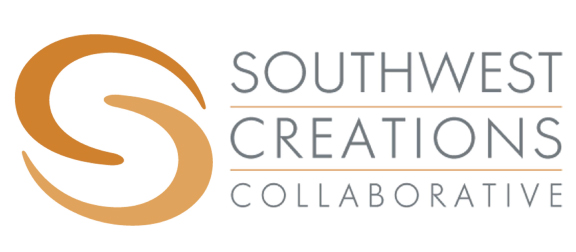Earlier this year, Southwest Creations Collaborative lost a large client when Erin Adams Design closed down.
SCC has a new client bringing manufacturing to Albuquerque from Los Angeles, and an opportunity to grow again, although the prospect does carry risks.
The social venture nonprofit employs 25, most of them Hispanic women, and offers domestic production and manufacturing services for wholesale and retail businesses. It provides on-site day care and adult education, including GED and English classes, and has a health education program.
At its peak in 2008, SCC had revenue of about $1.4 million and was on its way to self-sufficiency. In the recession, revenue has dropped to about $850,000.
It recently expanded its space and purchased equipment with a loan from The Loan Fund as part of a new contract with Kiwi Industries, a clothing firm based in Albuquerque. Kiwi is relocating production to SCC from Los Angeles in a move the owners say will increase quality control and help Kiwi grow. However, the move has meant restructuring Kiwi’s production schedule. It landed nontraditional funding so it can also meet the demands of SCC for a steady flow of work.
Kiwi’s children’s clothes are 100 percent organic cotton fabric made in the U.S., and its sweaters are knitted by a woman’s cooperative in Peru. The company was founded six years ago. Two years ago, Faith Begay-Holtrop and Laura McIndoo bought the firm with the help of a $75,000 loan from The Loan Fund. McIndoo was the designer for Kiwi. Begay-Holtrop is the former owner of Glowing Maternity Boutique, which carried Kiwi’s clothes before it closed. In June, Renee Rogers, who also works at Intel Corp., joined the partnership to oversee production.
Kiwi occupies a niche that is still growing despite the recession – high-end children’s clothes, said Charlie Christian, who owns Zap...Oh! in Nob Hill and carries Kiwi. The line’s price points range from $11 to $60, in line with its competitors, which Christian said is impressive since it’s produced domestically.
Kiwi reported sales of $280,313 last year, and sales have been growing at a rate of 20 percent. About 300 retailers carry its children’s clothing in the U.S., Canada and Japan, including Land of Nod, the children’s division of Crate & Barrel.
“In our target market, people are still spending money, and our market is still growing,” Begay-Holtrop said.
McIndoo and Christian said the unusual designs and colors are often the biggest selling points. McIndoo said she works hard not to put fire trucks or sports designs all over the boys’ clothes, and that helps them stand out from other lines.
“They don’t do typical frilly pink and blue. They’re more interesting colors than that,” Christian said.
One reason the partners decided to leave L.A., although the fabric is still manufactured there, was for better quality control. They also felt the larger clothing manufacturers were getting preferential treatment.
But it meant change. In the past, Kiwi would take orders, then ramp up production for two or three intense months to deliver to retailers by March.Susan Matteucci, executive director of SCC, said that model wouldn’t work for her firm since it would mean hiring more employees for several months, then possibly laying them off as production lulled. It needed a more steady, year-round production flow.
So Kiwi is estimating what it needs for fabric for the next 12 months of production based on previous sales and starting out on basics with SCC, such as caps and karate pants, until it has a better idea of what will sell, particularly after the owners attend the ENK Children’s Show in New York next week to gauge the popularity of several new designs.
This meant the company needed operating capital to finance fabric purchases and the production of its 2012 lines over the next 10 to 12 months. But the partners worried about the availability of credit in the current environment. Plus, suppliers have either shortened or eliminated their credit term offerings.
So they turned to a version of peer-to-peer lending, finding local supporters willing to lend the company money with the possibility of a higher rate of return than they might get from CDs or money market accounts. They have raised $70,000 from two such supporters and plan to pay off both loans by the end of the year. Kiwi offered them a rate of 8 percent on the loans, although they said future rounds will most likely be adjusted to around 5 percent.
Jo Ann Ziegler-Price, a retiree who worked at Bank of America, found Kiwi when she bought clothes for her grandchildren. She also knew Rogers. She loved the quality of the clothing and that it was from a local company. She reviewed the company’s business plan, toured the warehouse in northeast Albuquerque, and elected to become an investor.
“I was so impressed with the management there that both my husband and I said ‘Absolutely!’” she said.
This will be the biggest non-industrial sewing contract SCC has ever received, worth an estimated $84,000 in the first year. It does sewing work for industrial customer Süd-Chemie in Belen, and is making kimonos for Ten Thousand Wavesin Santa Fe and pillows for a home interiors firm in New York. Matteucci said SCC is looking for more New Mexico companies that need production services with attention to detail and for more work nationally with home interiors companies.
SCC will most likely put six people on the Kiwi account. It won’t give SCC the ability to hire back people it had to lay off, but it will help retain workers, Matteucci said.

